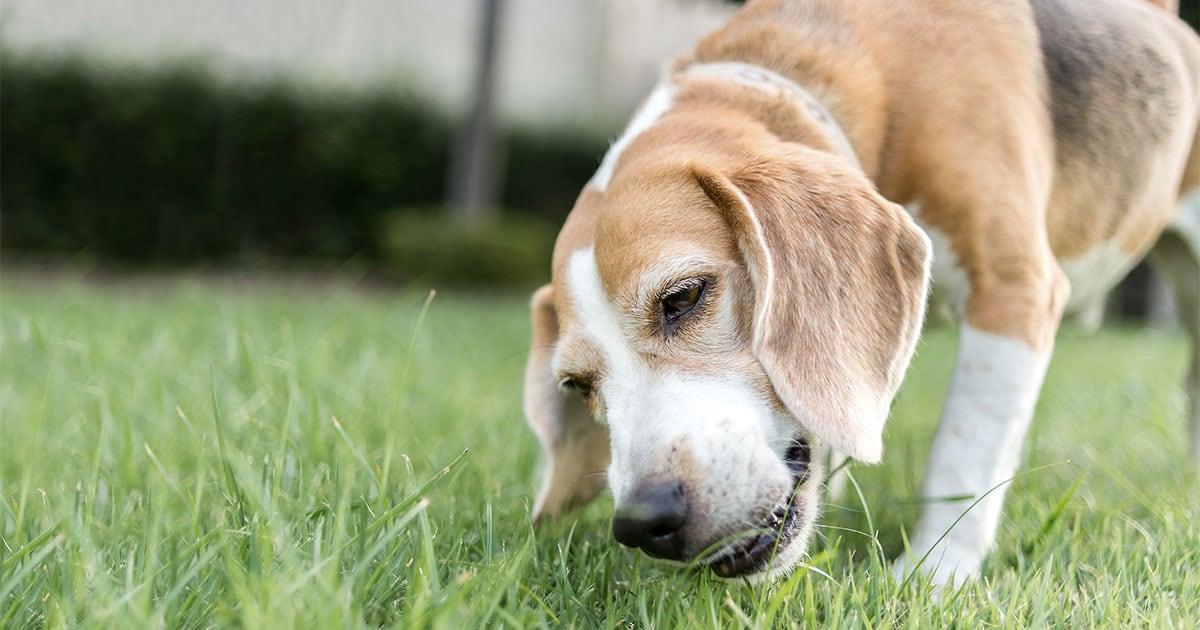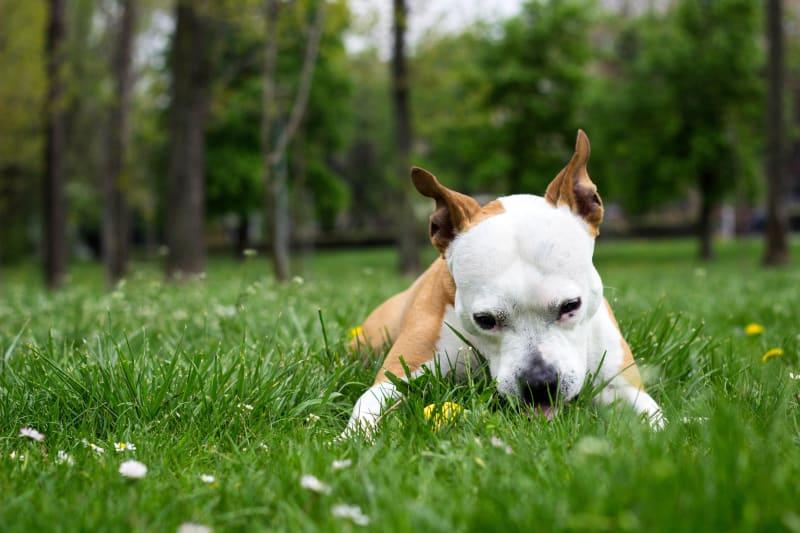Have you ever taken your furry friend for a walk, only to find them munching on the greenery lining the path? This curious behavior is common among dogs, leaving many pet owners wondering: why do dogs eat grass? Is it a sign of an underlying issue, or is it simply a quirk of canine behavior?
In this article, we’ll explore the reasons why dogs might indulge in this seemingly odd habit, what it could mean for their health, and when it’s time to consult a veterinarian. Understanding your dog’s dietary choices can enhance your bond and help you ensure their well-being, so let’s dig in and uncover the truth behind this grassy snack!
Table of Contents
- Understanding the Natural Instincts Behind Grass Eating in Dogs
- Common Reasons Dogs Choose Grass as a Snack
- Signs That Indicate a Potential Health Concern
- Tips for Managing Your Dogs Grass Eating Behavior
- Q&A
- To Conclude
Understanding the Natural Instincts Behind Grass Eating in Dogs
Dogs are known for their curious nature, and this curiosity often leads them to graze on grass. One aspect of this behavior relates to their natural instincts. In the wild, canines would consume plant material found in the stomachs of their herbivorous prey, providing them with essential nutrients and aiding digestion. This innate drive to explore their environment, along with the potential health benefits of ingesting grass, suggests that for many dogs, munching on green blades is a natural and instinctive behavior rather than a sign of illness. It’s essential to recognize that, while some dogs may enjoy this habit, it does not always indicate a nutritional deficiency.
Furthermore, the act of eating grass can also be linked to a dog’s emotional state. Many pet owners have observed their dogs munching on grass when feeling stressed or anxious. This behavior may serve as a self-soothing mechanism, helping them cope with unease. Pay attention to your dog’s body language and overall demeanor while they consume grass; it can provide valuable insights into their mental health. By observing these patterns, dog owners can better understand their furry companions and decide when to consult a veterinarian if they notice concerning changes in behavior. Below is a brief list to consider:
- Common reasons dogs eat grass:
- Natural instinct
- Digestive relief
- Stress and anxiety
- Boredom or curiosity
Common Reasons Dogs Choose Grass as a Snack
Dogs have a myriad of reasons for nibbling on grass, and understanding these motivations can help pet owners differentiate between normal behavior and potential health concerns. One common reason is dietary deficiency; dogs may instinctively seek out grass to supplement their diet with essential nutrients, such as fiber. If their regular food lacks certain vitamins or minerals, they might turn to grass as a means to fill that gap. Another possibility is boredom or curiosity—dogs are naturally curious creatures, and a patch of grass can present an interesting challenge. Just like humans might snack out of boredom, dogs may munch on grass to pass the time, especially during long walks or outdoor play sessions.
Additionally, some dogs indulge in grass due to nausea or digestive upset. While research is inconclusive, many dog owners report that their pets often vomit after eating grass, potentially as a way to trigger their gag reflex. However, this behavior can sometimes be incidental and not necessarily tied to an underlying health issue. In cases where dogs regularly consume large amounts of grass or show signs of distress, it’s crucial to assess their overall health. Observing patterns in their eating habits can help owners determine whether this behavior is merely a quirky preference or a signal of a deeper problem. Here’s a quick overview of potential reasons:
| Reason | Description |
|---|---|
| Dietary Deficiency | Seeking nutrients lacking in their regular diet. |
| Boredom | Snacking out of curiosity or lack of stimulation. |
| Nausea | Inducing vomiting as a response to digestive upset. |
Signs That Indicate a Potential Health Concern
While it’s quite common for dogs to indulge in the occasional munch on grass, there are specific signs that could signal an underlying health issue. Pay attention to your dog’s behavior, as consistent or excessive grass-eating can indicate problems such as gastrointestinal distress or nutritional deficiencies. Look for the following signs associated with potential health concerns:
- Frequent Vomiting: If your dog is regularly vomiting after eating grass, it may not be just a harmless habit.
- Change in Appetite: A sudden shift in eating habits, whether increased or decreased, can be a red flag.
- Diarrhea: Loose stools or diarrhea accompanying grass consumption can indicate digestive issues.
- Excessive Lethargy: If your furry friend seems unusually tired or inactive, that could signal health problems.
In some cases, your dog’s grass-eating may be accompanied by other concerning behaviors. Monitoring these additional symptoms can help you determine when to consult your veterinarian. Consider keeping a record of occurrences and any related symptoms to provide your vet with a clearer picture. Here’s a brief summary of behaviors that, when combined with grass-eating, warrant further investigation:
| Behavior | Possible Concern |
|---|---|
| Consistent gagging | Possible obstruction or irritation |
| Weight loss | Underlying health issues or parasites |
| Increased thirst | Potential kidney or metabolic issues |
| Behavioral changes | Possible pain or discomfort |
Tips for Managing Your Dogs Grass Eating Behavior
Understanding your dog’s grass-eating behavior can help you manage it effectively. While some dogs might munch on grass out of boredom or curiosity, others may seek it out for its digestive benefits. To address this, consider engaging your furry friend in more stimulating activities, such as daily walks or interactive toys that promote mental engagement. Incorporating regular exercise can greatly reduce the urge to graze. Additionally, offering a balanced diet with adequate fiber can help prevent gastrointestinal discomfort that might lead to grass consumption.
If your dog does eat grass, monitor them closely. Here are some practical tips to keep in mind:
- Provide a Healthy Diet: Ensure your dog’s food contains enough fiber.
- Hydration is Key: Always have fresh water available to avoid any digestive issues.
- Limit Access to Untreated Grass: Keep your dog away from areas that might have pesticides or chemicals.
- Vet Consultation: If grass eating becomes excessive or is accompanied by vomiting, consult a veterinarian.
Q&A
Q: Why do dogs eat grass? Is it normal behavior?
A: Yes, it is quite normal for dogs to eat grass. Many dogs will occasionally munch on grass, and most of the time, it’s a completely harmless behavior. Some experts suggest that dogs may eat grass out of boredom, to supplement their diet with fiber, or simply because they enjoy the taste.
Q: Should I be worried if my dog eats grass?
A: In most cases, no, you shouldn’t be worried. However, if your dog is frequently eating large amounts of grass or seems to be doing so out of distress, it might be a sign of an underlying issue. Keep an eye on their behavior and consult your veterinarian if you notice any concerning changes.
Q: Can eating grass make my dog sick?
A: Eating grass can lead to vomiting in some dogs, but this isn’t always the case. Many dogs will eat grass and then throw it up, possibly due to the texture or because they ate too quickly. If your dog vomits after eating grass, it may be a natural reaction. However, if vomiting becomes frequent or is accompanied by other signs of illness, it’s best to consult your vet.
Q: Are there specific types of grass that are harmful to dogs?
A: While many grasses are safe for dogs, be cautious of any chemical treatments or pesticides that may be sprayed on lawns. Some plants can be toxic, so it’s wise to ensure that the grass your dog is munching on hasn’t been treated with harmful chemicals. If you’re unsure about specific plants or grasses in your area, ask your vet for advice.
Q: How can I discourage my dog from eating grass?
A: If you’d prefer your dog not to eat grass, try to redirect their attention with toys, training, or more interactive playtime. Providing a balanced and nutritious diet might also reduce their desire to seek out extra fiber in grass. Positive reinforcement for desired behaviors can be effective as well.
Q: When should I take my dog to the vet regarding grass eating?
A: If your dog is frequently eating grass and showing other signs of distress—such as lethargy, loss of appetite, or ongoing vomiting—it’s time to see your vet. Additionally, if your dog is consuming grass excessively or if you suspect they may have ingested something harmful, don’t hesitate to seek professional advice.
Q: Are there any health benefits to dogs eating grass?
A: Some studies suggest that grass-eating may help with digestion or may aid in the elimination of parasites, but more research is needed in this area. if your dog’s grass consumption is moderate and they’re otherwise healthy, it’s likely not a cause for concern.
Q: Can I prevent my dog from eating grass altogether?
A: While you might not be able to prevent your dog from eating grass entirely, providing a well-balanced diet, regular exercise, and mental stimulation can reduce their urge to forage. Remember, it’s a natural behavior for many dogs, and as long as they’re healthy, it’s usually just a quirky habit!
To Conclude
while the sight of your furry friend munching on grass may raise some eyebrows, it’s generally a normal behavior for many dogs. Understanding the reasons behind this grass-eating habit—whether it be natural instinct, boredom, or digestive relief—can help you address any potential concerns. Remember, it’s essential to monitor your dog’s overall health and behavior. If you notice any alarming signs or persistent vomiting, don’t hesitate to consult your veterinarian. With a little attention and care, you can ensure your canine companion stays happy and healthy. Thank you for reading, and may your adventures with your four-legged friend be filled with joy and curiosity!

















